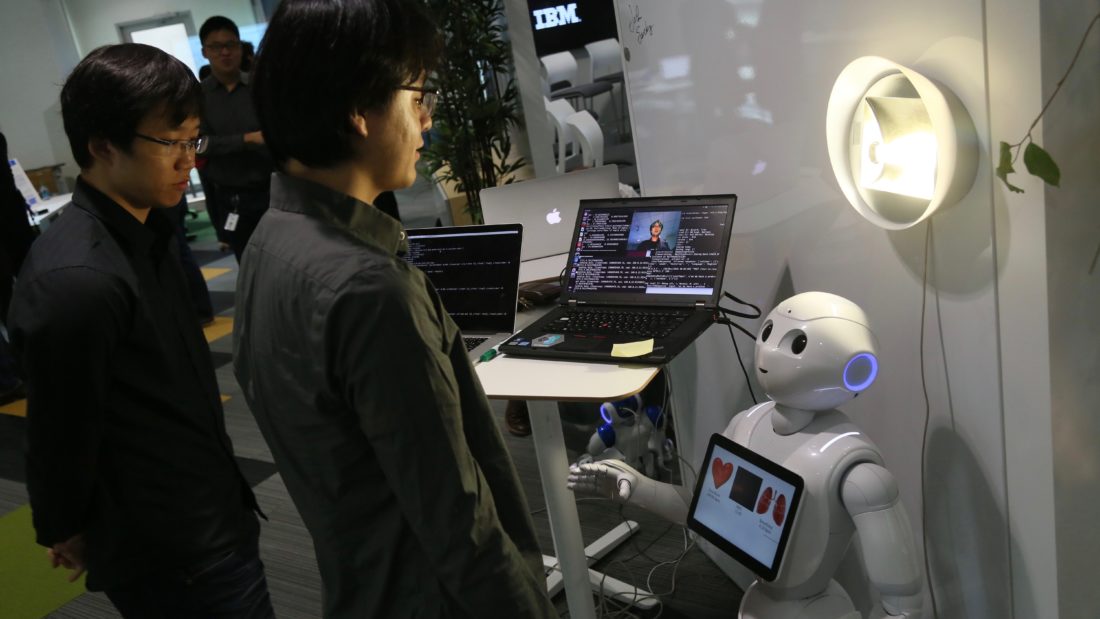The rise of artificial intelligence has given marketers a new array of tools to face the challenge of the digitally empowered consumer. But at the same time, marketers are facing a challenge of understanding what AI can and can’t do for them, and how to apply it without letting personalization run amok.
Krystal Webber, global design lead for IBM Blockchain Services, spoke at the recent WP Engine Summit about AI, machine learning and user experience and how they can come together in what she called “anticipatory design.”
Anticipatory design is behind a number of rising industries and companies, like Uber and the Nest home system, said Webber. But it’s not limited to consumer items; IBM has leveraged its Watson platform in a significant way in the healthcare field as a diagnostic assistant. The Watson for Oncology application combines patient and other data with medical studies and provides doctors with recommendations for patient care.
IBM—which has opened Watson to developers looking to leverage it in real-world applications—is itself transforming from an engineering company into a design company, in part on the strength of its AI solutions. The company has launched a Client Innovation Center in Austin where clients can work with IBM mobile technologists to develop mobility solutions. Austin is IBM’s worldwide headquarters for design and home to more than 500 designers.
The idea of “artificial intelligence” has gotten some pushback from the public, but it is not meant as a replacement for people. IBM refers to its artificial intelligence capabilities as “cognitive computing” because their intent is not to replace humans, but rather to augment their capacity, said Webber.
As it continues to evolve, anticipatory design will push personalization much further than it has already. “We’re going to see a lot more mainstream adoption,” said Webber.
Come back to Velocitize for more content from the WPE Summit: speaker interviews, session videos and more!
